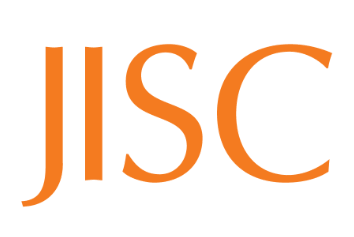-
Recently Annotated Articles
Categories
Tags
AAT Algorithms application automatic classification CIDOC-CRM classification Dewey Decimal Classification (DDC) Digital Archives dimensions of KOS evaluation Display distributed FACET graph model Interface interoperability KOS LCSH Linked data map Ontology ontology visualization python Qualitative Method references retrieval SKOS software system theories Thesaurus user Visualization vocabularies vocabulary mapping
Category Archives: Vocabularies
User-centered indexing
Fidel, R. (1994). User-centered indexing. Journal of the American Society for Information Science, 45(8), 572-576. User-centered indexing: requires we index reflecting the approach users would take to find a document. Document centered: that indexing, like abstracts, creates surrogates for documents. … Continue reading
A Faceted Classification as the Basis of a Faceted Terminology: Conversion of a Classified Structure to Thesaurus Format in the Bliss Bibliographic Classification, 2nd Edition
Citation: Vanda Broughton. A Faceted Classification as the Basis of a Faceted Terminology: Conversion of a Classified Structure to Thesaurus Format in the Bliss Bibliographic Classification, 2nd Edition. Axiomathes. 2008, 18(2): 193-210 This paper develops a faceted thesaurus based on … Continue reading
Commercial Controlled Vocabulary Software Evaluation
Comparative evaluation of thesaurus creation software. (Hedden, 2008) This article compares three commercial thesaurus creation and maintenance tools; MultiTes, Term Tree 2000, and WebChoir TCS-10. The author sets out requirements for thesaurus maintenance, taken from published standards, that the three … Continue reading
ThManager: An open source tool for creating and visualizing SKOS
Lacasta, J., Nogueras-Iso, J., Lopez-Pellicer, F. J., Muro-Medrano, P. R., & Zarazaga-Soria, F. J. (2007). ThManager: An open source tool for creating and visualizing SKOS. Information Technology and Libraries, 26(3), 39-50. In this paper, the authors presented the design and … Continue reading
Analysis of equivalence mapping for terminology services
Citation: McCulloch, E & Macgregor, G. (2008). Analysis of equivalence mapping for terminology services. Journal of Information Science, 34 (1), p. 70-92. Rationale: Terminology mapping is evident in a number of KOS interoperability approaches. It involves imposing equivalence, conceptual and … Continue reading
Posted in Vocabularies
Tagged classification, interoperability, SKOS, vocabulary mapping
Leave a comment
LCSH, SKOS and Linked Data
A technique for converting Library of Congress Subject Headings MARCXML to Simple Knowledge Organization System (SKOS) RDF is described. Strengths of the SKOS vocabulary are highlighted, as well as possible points for extension, and the integration of other semantic web vocabularies such as Dublin Core. An application for making the vocabulary available as linked- data on the Web is also described. Continue reading
JISC State-of-the-art Study on Terminology Services
JISC State-of-the-art Study on Terminology Services (2006) http://www.ukoln.ac.uk/terminology/JISC-review2006.html This report reviews vocabularies of different types, best practice guidelines, research on terminology services and related projects. It discusses possibilities for terminology services within the JISC Information Environment and eFramework. The report … Continue reading
Posted in Concepts and Theories, Vocabularies
Leave a comment
Knowledge Organization System (KOS)
Marcia Lei Zeng. Knowledge Organization System (KOS). Knowledge Organization[J]. 2008(35): 160-182 This paper is a review about different types of KOS and their applications. 1. Overview of types of Knowledge Organization Systems The Class of KOS has four major groups … Continue reading
The CIDOC Conceptual Reference Module – An ontological approach to semantic interoperability of metadata
Citation: Doerr, M. (2003). The CIDOC Conceptual Reference Module – An ontological approach to semantic interoperability of metadata. AI MAGAZINE, 24(3), 75-92. Goals of Research: To justify the methodology and design of CIDOC-CRM by functional requirements. Summary: The emergence of … Continue reading




